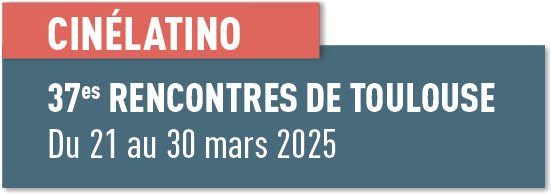Selection:
Director:
Country:
- Spain
Format:
Type:
Film exhibited in Toulouse:
Una vida sin palabras /A Life Without Words (largometraje documental, competición)
48ª edición del International Antalya Golden Orange Film Festival. Antalya, Turquía.
33ª edición del festival de cine de La Habana (Festival Internacional del Nuevo Cine Latinoamericano). La Habana, Cuba.
5ª edición de Atlantidoc International Documentary Film
Festival. Atlántida, Uruguay.
23ª edición del Ankara International Film Festival.
Ankara, Turquía.
Foreseen cast:
Approx. 50 non-famous, non-expert participants from Catalan society.
Script writer(s):
Synopsis:
After centuries of linguistic conflict between Spanish and Catalan--including the persecution of Catalan for decades under the dictatorship of Francisco Franco and then the language's promotion to (co)official status after his death--the collective psyche of Catalan society suffers a peculiar neurosis. Today, the simple matter of a restaurant owner choosing which language to use on his menus can reveal anxieties about immigration, historical memory, collective rights, the construction of identity and the role of the state in normalizing behavior.
'Catalonia on the Couch' explores the ongoing language conflict in Catalonia through the testimony of a wide spectrum of people who live there. One after another, young and old, a stream of dozens of residents of Catalonia from across the political and socioeconomic spectrum will sit down on the same couch to reveal personal stories from the front lines of the conflict. The participants are not politicians, academics or other such experts, but rather everyday people with personal stories of frustration, misunderstanding, and alienation that reveal the complex relationship between language, identity and power.
Many Catalan speakers feel their language is disappearing under their feet, but in some circumstances they are shamed out of speaking it. Many Spanish speakers resent what they see as an imposition of Catalan. Many new arrivals look quite harshly on Catalan, perceiving its use as excluding them, while other newcomers embrace it as a means of integration. Some with Spanish as a first language grow up to self-identify as Catalan speakers, while others with Catalan as a first language prefer to use Spanish by default. All have their reasons, and their techniques for navigating Catalonia's tricky linguistic terrain reveal unavoidable tensions.
The edited film will play as a stream-of-consciousness, jumping from participant to participant and back again to create the effect of a single character--Catalan society--in conflict with itself.
Visual concept:
The film's visual anchor will be a comfortable armchair surrounded by a neutral décor, much like that of a therapist's office, where the subjects will be seated. The main camera will not move at all between interviews, so when jump-cutting between subjects the only thing that changes will be the person in the chair. The effect will be to create a single character, a composite of Catalan society.
Between sessions on the couch will be short fly-on-the-wall scenes of Catalan society from various linguistic domains: restaurants, schools, offices, the street, hospitals, police stations, nightclubs, demonstrations, the radio and television, etc. Such brief scenes will document the exterior of Catalan society, while the sessions on the couch will reveal hidden layers of tension. Throughout, subtitles of Catalan speech will be in one color and those of Spanish in another.







